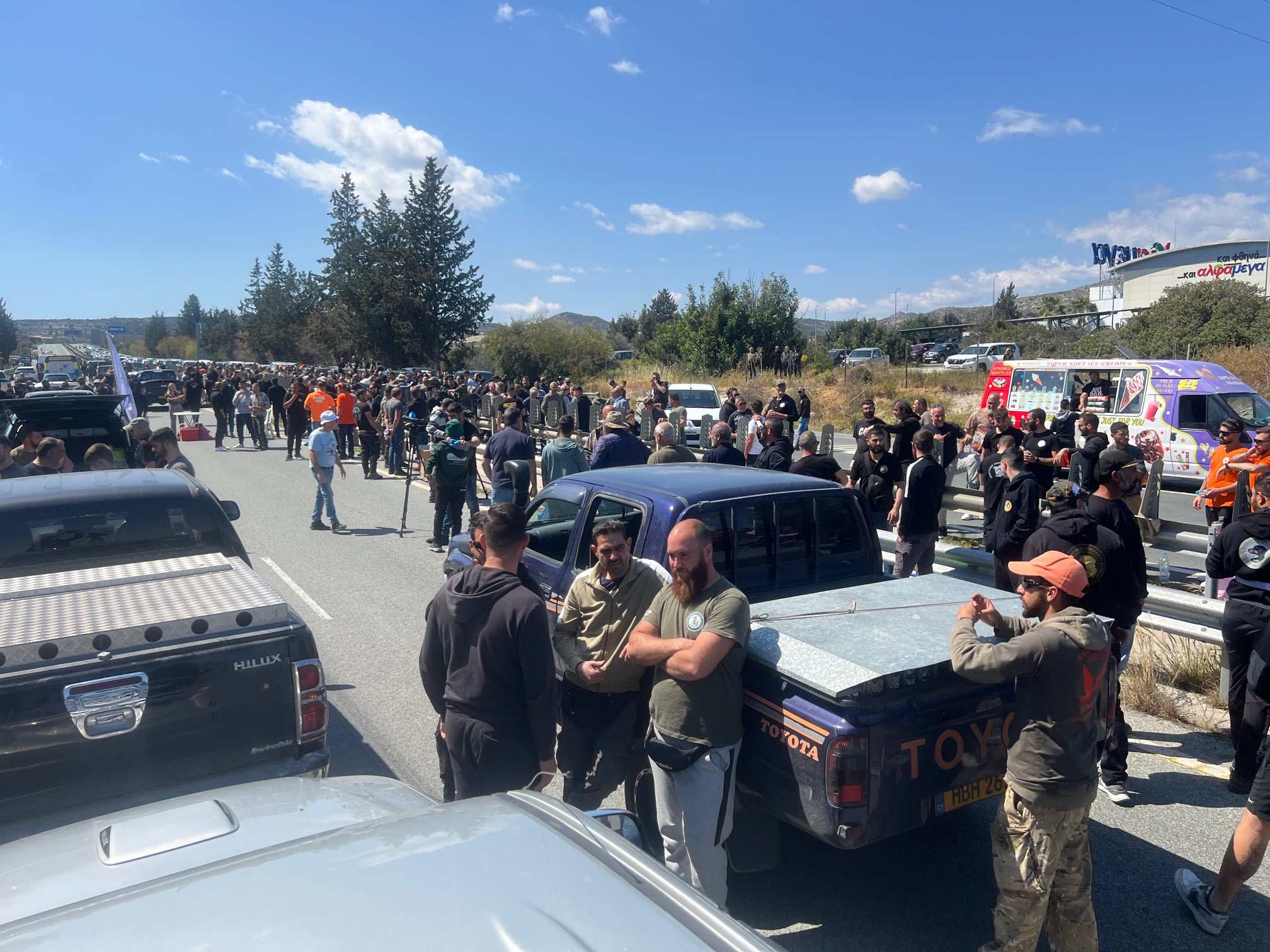Police chief Themistos Arnaoutis has refused to answer questions on law enforcement’s response to last Sunday’s protest by hunters, which caused major disruption on the Nicosia-Limassol motorway.
Speaking before the House legal affairs committee, Arnaoutis declined to comment on the police’s actions, citing two ongoing investigations. The protest, which saw all four lanes of the motorway blocked, resulted in significant delays and frustration for thousands of motorists.
Arnaoutis informed MPs that two separate inquiries are underway – an administrative review and a criminal investigation into potential offences committed during the demonstration. When pressed on when the findings would be available, he estimated a timeline of one month.
Following instructions from the justice minister, Arnaoutis gave orders on March 25 for the initiation of these investigations at different levels. The deputy police chief Panicos Stavrou will lead the administrative review, focusing on the police’s handling of the protest before and during the event. Meanwhile, the crime suppression department director Panayiotis Kountouresis will investigate any possible criminal offences committed during the demonstration, the police announced on Wednesday.
The police chief reiterated that these investigations were launched under ministerial direction and are expected to conclude within a month. His reluctance to discuss the matter sparked strong reactions from MPs across all parties. The police chief explained that he had sought a report from Larnaca’s police director the day after the protest and later briefed the minister of justice. Following ministerial instructions, he then ordered both investigations.
The reactions of MPs were intense regarding the disruption and inconvenience caused by the protest, with several members criticising the closure of the motorway and its impact on drivers. Justice Minister Marios Hartsiotis was absent from the committee session, which further frustrated MPs.
“I was never invited to appear before the House legal affairs committee,” justice minister said on Wednesday, following press reports on the minister’s refusal to appear before the committee.
As stated, based on the agenda, the invitation was for representatives of the ministry of justice representatives not the minister personally, adding that the ministry was represented, based on the invitation, by the justice sector director.
Arnaoutis suggested postponing the discussion due to the ongoing investigations. However, Akel MP Aristos Damianos opposed this, stating that the police chief has no authority to block a parliamentary audit.
“To avoid prejudicing the outcome of these investigations, my suggestion is to postpone the discussion of the issue,” Arnaoutis told MPs.
Despite his request, the session continued. Addressing the committee, Arnaoutis confirmed that on Monday, the day after the protest, he requested and received a report from the Larnaca police director on what happened before and during the event. He further stated that he raised the matter with the justice minister, who instructed him to initiate investigations at two levels.
When asked whether police officers would be investigating their colleagues, Arnaoutis clarified that he had assigned the deputy police chief to lead the administrative review, ensuring an internal assessment of police actions before and during the event. A separate officer at police headquarters would handle the criminal investigation into possible offences committed by protesters.
MPs pressed Arnaoutis on whether he was aware that the protest would take place. He responded that the administrative inquiry would determine what actions police took before the event and said it would be premature for him to comment further.
Committee chairman Nicos Tornaritis announced that a follow-up session would be held on April 23 at 9am, with the justice minister invited to attend.
When asked whether any officers would be suspended pending the inquiry’s outcome, Arnaoutis responded that no suspensions were necessary at this stage. He reiterated his request for MPs to wait until the investigations were complete before drawing conclusions.
MPs criticised his reluctance to answer key questions, with Damianos stating that the police chief could not use an administrative review as a reason to avoid parliamentary scrutiny. “The chief is obliged to respond to the questions about what happened before the protest without hiding behind an administrative investigation, which is irrelevant at this moment,” he said.
Justice ministry representative Faidra Grigoriou told MPs that everything was “under the microscope” and that legally, no information that could influence the investigations should be disclosed at this stage. However, Damianos argued that administrative inquiries do not prevent parliamentary oversight, adding, “We can scrutinise everyone except God.”
Diko MP Christiana Erotokritou echoed these concerns, saying the protest created a sense of insecurity among the public. She described how footage of the motorway blockade made citizens feel that “any group of people can shut down major roads at will, with police standing by.”
Independent MP Kostis Efstathiou opposed holding the session behind closed doors, arguing that such measures are only justified in cases of national security concerns.
Disy MP Nicos Georgiou asked Arnaoutis whether the government had been informed about the planned protest and what stance the political leadership had taken. Arnaoutis did not provide a direct answer but reiterated that the administrative inquiry would clarify the sequence of events leading up to the demonstration.






Click here to change your cookie preferences